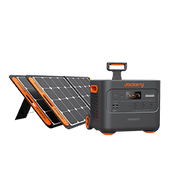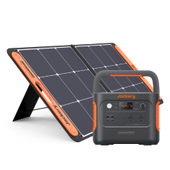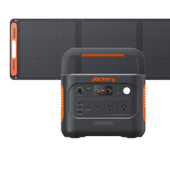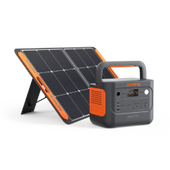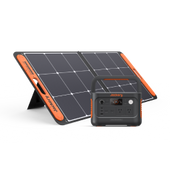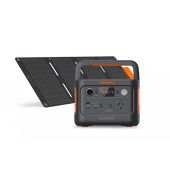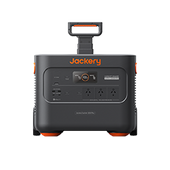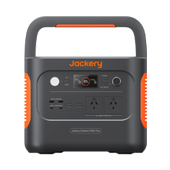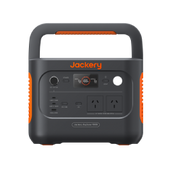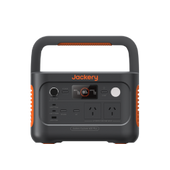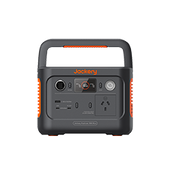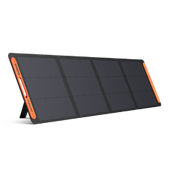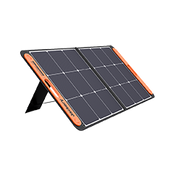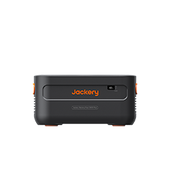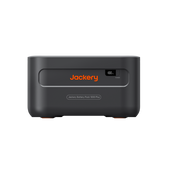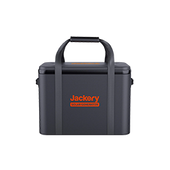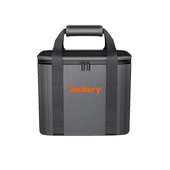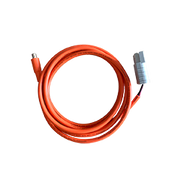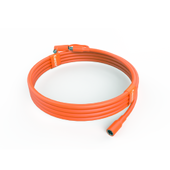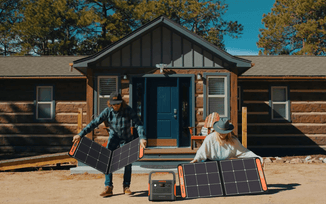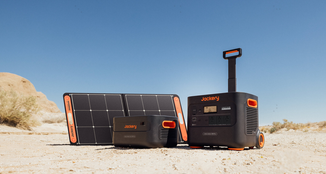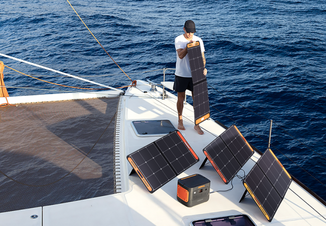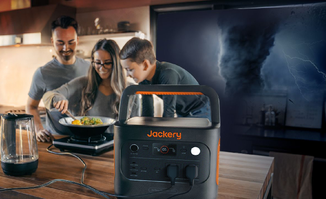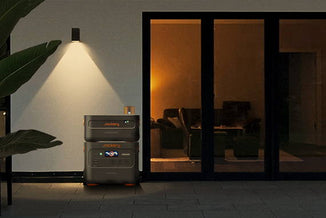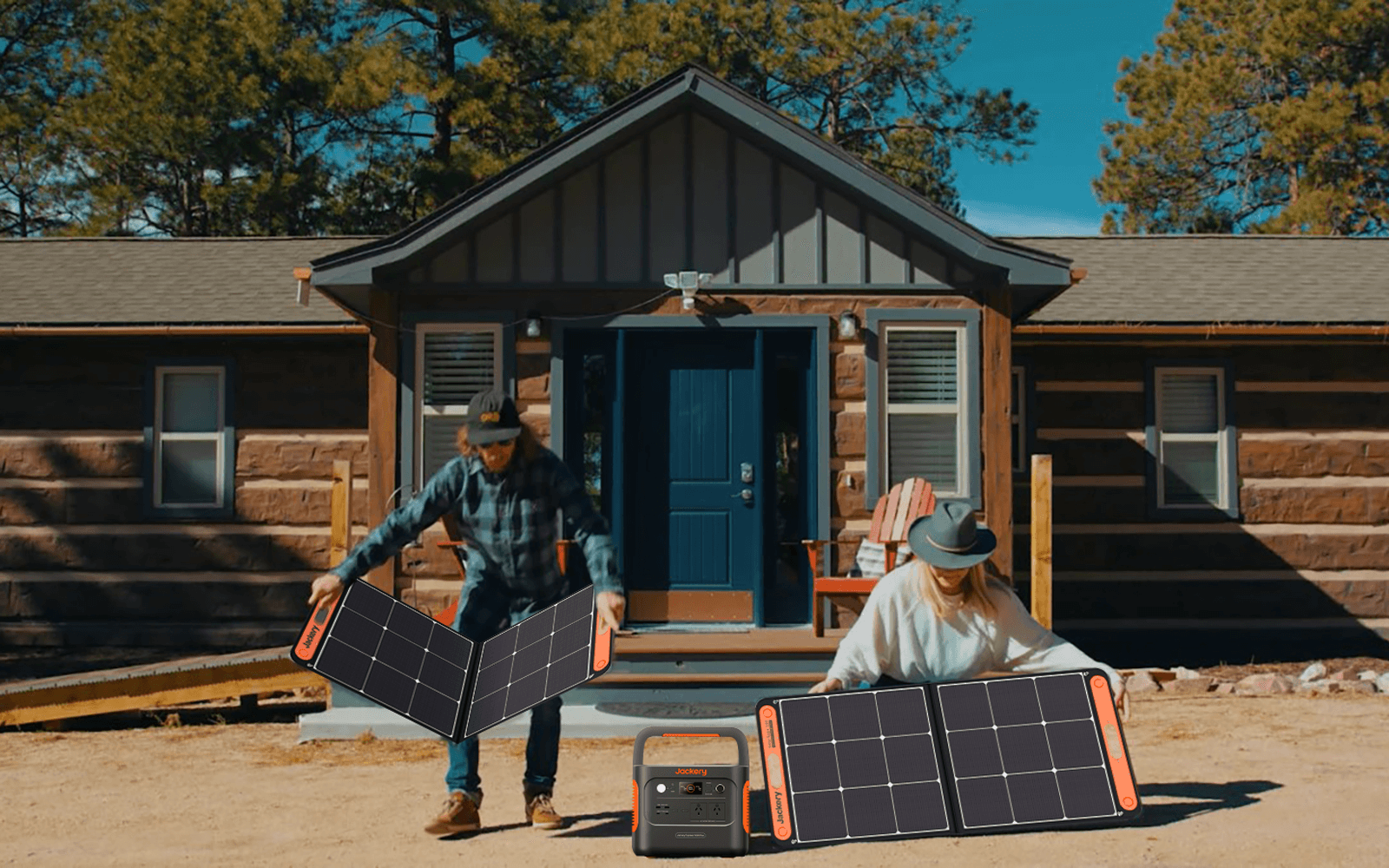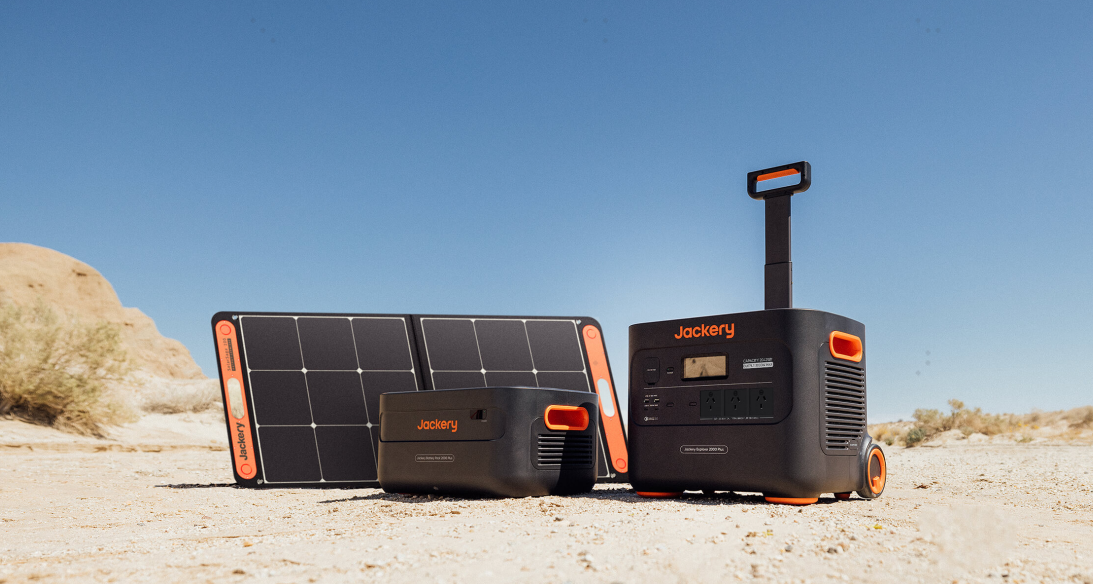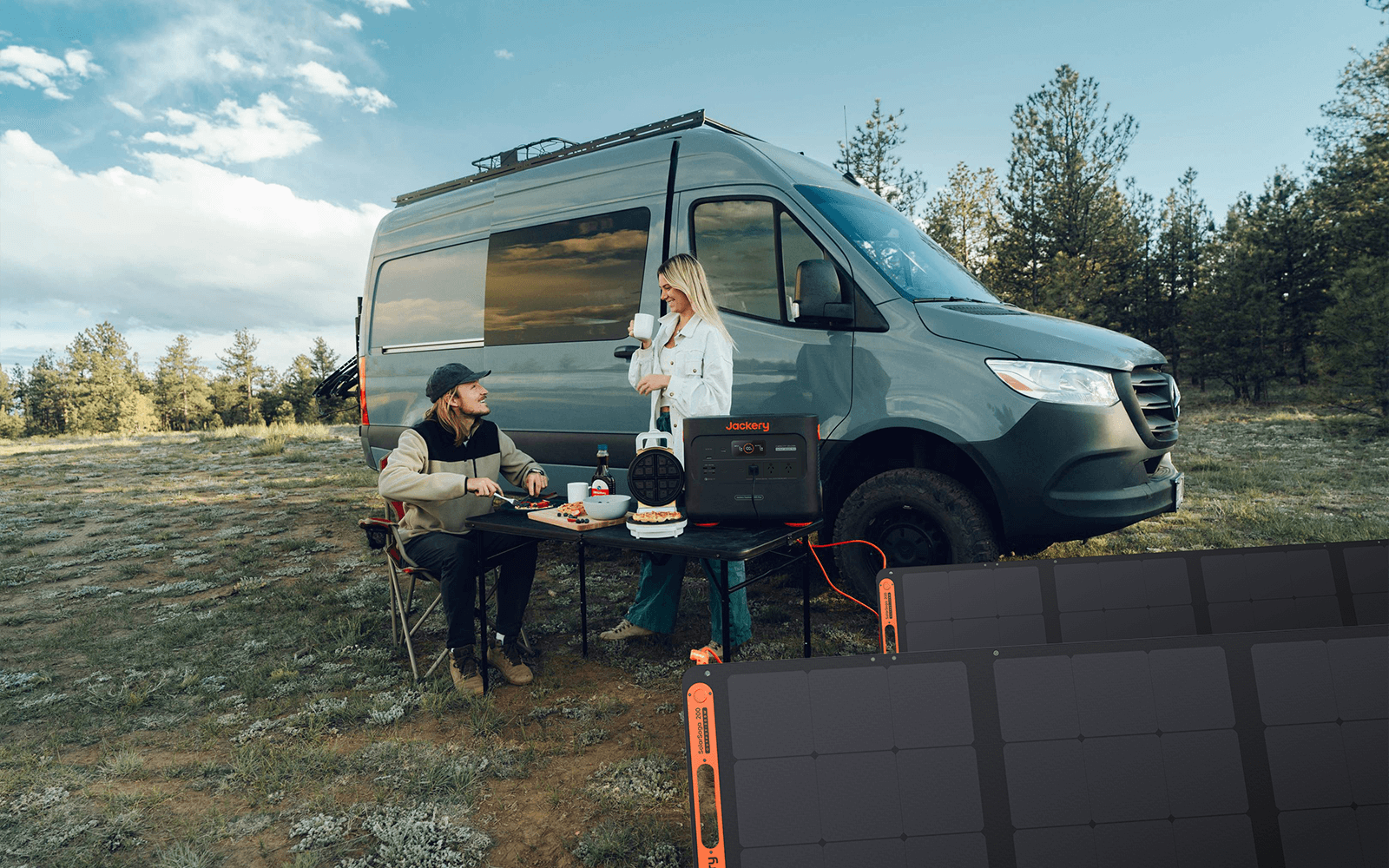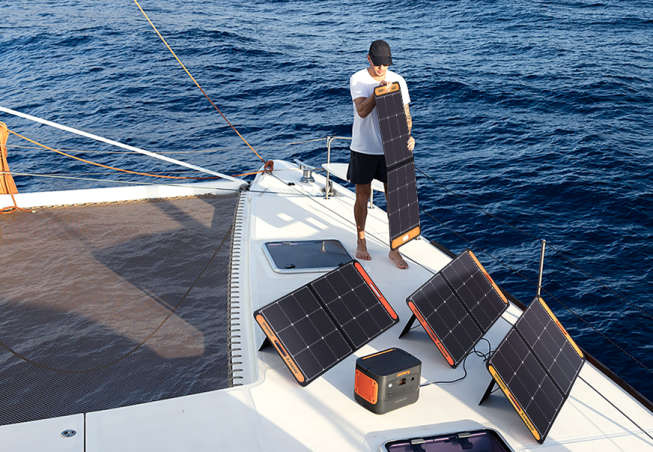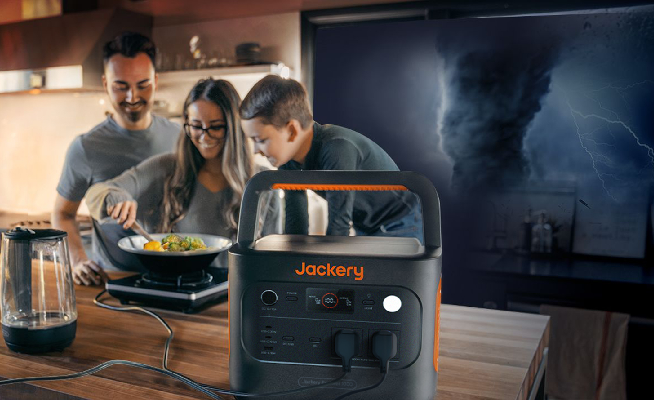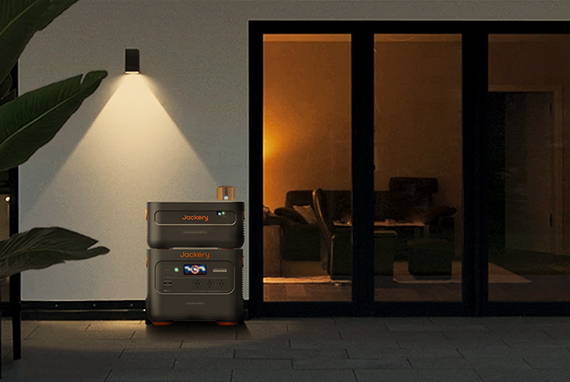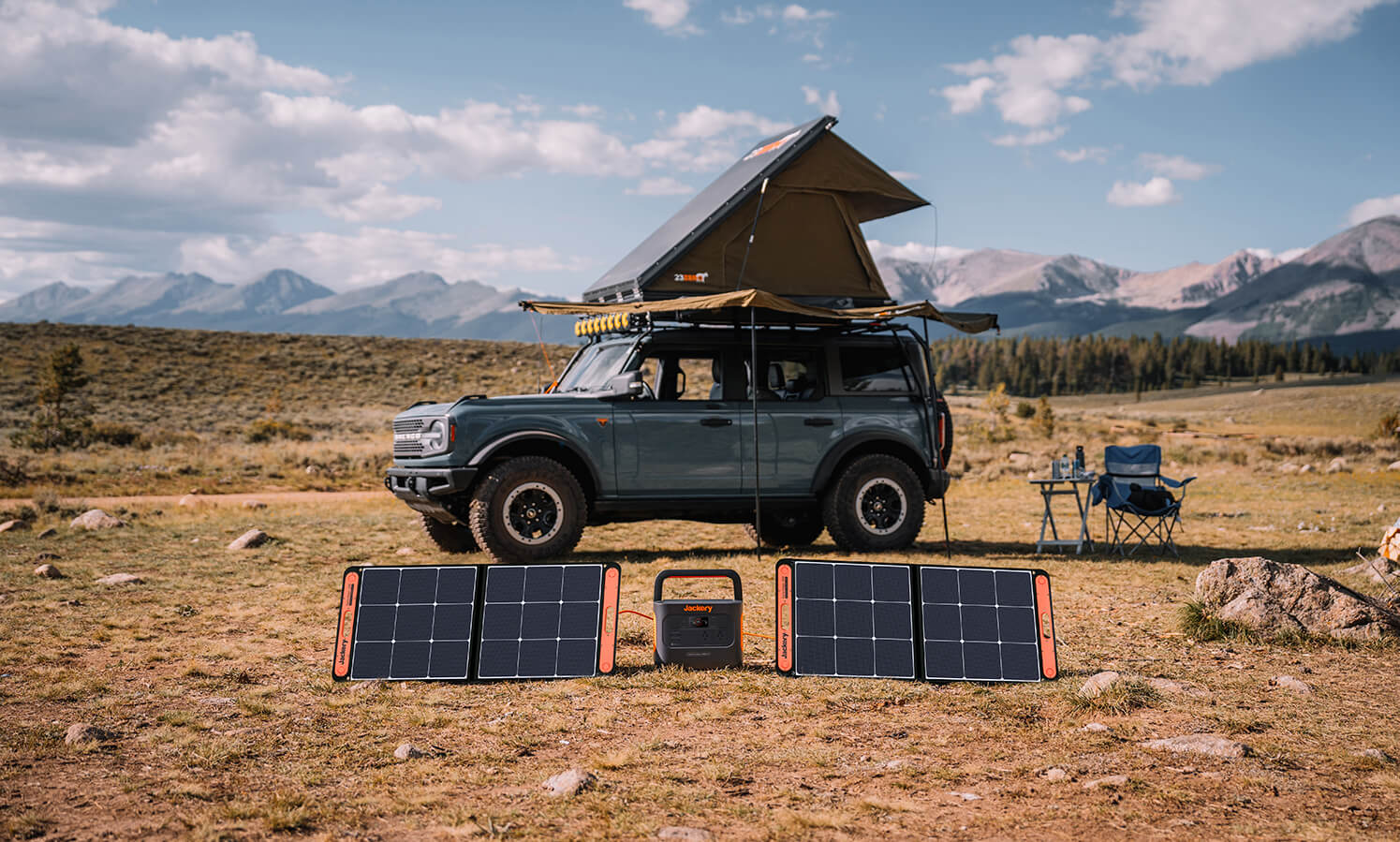Top 8 Differences Between Solar Generators and Fuel Generators
In the first section, we mentioned your primary motivation and common areas of use when choosing between a solar energy generator and a fuel generator. However, more specific or subjective reasons influence your choice. Eight fundamental differences between solar and fuel generators will be evaluated to determine why we chose one and not the other. Let's look at these options one by one:
1. Design and Construction
A typical solar generator comprises key components such as battery storage, an inverter, and solar panels. They work together to convert sunlight into electricity. These generators are known for being portable, making them ideal for indoor and outdoor settings. Their compact size makes easy transportation and installation possible. Solar generators also have an advantage in terms of aesthetic appeal. They tend to be more visually appealing than fuel generators as they lack the industrial appearance commonly associated with engines and fuel tanks.
In contrast, a fuel generator consists of an engine, alternator, fuel system, voltage regulator, and cooling system. This combination of components powers the generator by combusting fuel, typically gasoline or diesel, to produce electricity. Fuel generators are generally larger and heavier due to the need for a sizable engine and fuel storage, making them less portable and more suitable for stationary power needs or backup power during emergencies.
2. Power Source
Solar power generators are natural electricity generators. How does solar energy generate electricity? Solar power converts energy from sunlight into a usable form of electricity. Solar generators are specifically engineered to capture the sun's energy using solar panels, which then convert sunlight into electrical energy. Fuel generators, on the other hand, are built to convert chemical energy from fuel sources like gasoline, diesel, or propane into electrical energy through combustion. They include engines that turn generators to produce electricity.
3. Average Weight
Solar generators are lighter than petrol generators. Its easy portability makes it especially preferred by RV users who need a generator for outdoor activities, picnic lovers, campers, and nature enthusiasts. Those traveling by car can find space in the trunk for a fuel generator. Still, carrying these heavy and bulky products from one place to another is not feasible.
- Solar generators are lightweight. Compact design and materials make solar power sources light. For example, the Jackery Solar Generator 1000 Pro(one Jackery Explorer 1000 Pro Portable Power Station and one Jackery SolarSaga 100W Solar Panel) weighs only 19kg.
- Fuel generators are heavy products due to their bulky structures and metal frames. The parts added to the inner body to protect risky units, such as the engine assembly and fuel tank inside the generator, from external impacts make the product even heavier.
4. Noise Level
Noise level is a feature that will cause you to choose the solar generator when choosing between a solar generator and a fuel generator.
- Solar generatorsare quiet due to the absence of noisy engines and minimal moving parts. You might hear a faint hum from the inverter. Still, they're perfect for noise-sensitive environments like homes, offices, and even outdoors. They generate less than 60 dB of noise.[1]
- Fuel generators can be noisy, mainly when operating at total capacity. The noise level of a fuel generator varies depending on its size and model. The decibel level of most portable gas generators ranges between mid-70 and mid-80 dB.[2]Continuous exposure to this level of noise can be disruptive and annoying since it exceeds the average talking voice, which is around 60 dB.[3]
5. Environmental Impact
Solar energy is sustainable, and you can use it for a cleaner, safer future. Fuel generators are as problematic as motor vehicles due to carbon dioxide emissions. Solar generators are the clean choice: they use the sun's power with zero emissions, reducing your carbon footprint and helping the environment.
6. Average Lifespan
Both solar and fuel generators can last for years, but solar generators require less maintenance. Solar panels are durable and must be kept clean and stored correctly. Fuel generators, with their engines and moving parts, require frequent cleaning and filter changes and may malfunction if not used regularly. It makes solar generators the more hassle-free option in the long run.
7. Initial Cost
Solar generators might seem pricier at first glance than fuel generators, but there's a reason for it. They're packed with cutting-edge tech! Think high-efficiency solar panels that turn sunlight into electricity and fancy lithium-ion batteries that store all that power. These features are costly; The initial price tag might be higher, but it's like an investment.
8. Long-Term Cost: Sunshine vs. gas pump
Here's where solar generators genuinely shine! While the initial cost might be higher, they offer significant savings over time due to two key factors:
- Free Fuel Source: The sun is your ultimate power plant! It means minimal ongoing costs to power your devices, eliminating trips to the gas station and worries about fluctuating fuel prices. Solar generators boast simpler designs with fewer moving parts compared to fuel generators. This translates to less frequent maintenance. The primary upkeep involves keeping the solar panels clean and storing the generator properly when not in use. These simple tasks are easy to manage and require minimal additional expense.
- Fuel Generators: The hidden costs keep adding up. Fuel generators will consume fuel every time you need to run them. Suppose you need to use your generator frequently. In that case, fuel costs will cause you to regret not purchasing a solar generator in the long run. Moreover, gasoline and diesel are perishable fuels. If you rarely use the fuel generator, the fuel tank's remaining fuel may cause problems.Some parts of your fuel generator should be replaced periodically. Regular maintenance and parts replacement will cost you money.
Performance Comparison: Solar vs. Fuel Generators in Indoor and Outdoor Settings
In the realm of portable power solutions, solar generators often outshine fuel generators in various settings, offering distinct advantages indoors and outdoors. Let's delve into this performance comparison, emphasizing where solar generators excel.
Indoor Performance Comparison
Imagine you're cozied at home, catching the latest episode, when the lights suddenly flicker and die. Power outage! But instead of fumbling for candles and sweating through a hot night, you grab your solar generator. The lights are back on, and the phone is charging – the crisis has been averted! It is silent, clean power wherever you need it, indoors or out. Solar generators provide just that – operating quietly without emitting harmful fumes, making them ideal for indoor use. In contrast, fuel generators can be noisy and release exhaust, which can be problematic if used inside or even near enclosed spaces.
Outdoor Performance Comparison
While fuel generators have traditionally been used for outdoor activities, such as camping or providing power at remote job sites, solar generators are quickly becoming the preferred choice. They harness the sun's energy, making them an eco-friendly option that aligns with outdoor adventures focused on preserving natural environments. Additionally, solar generators don't require noisy engines or fuel, ensuring a peaceful experience amidst nature's tranquility.
Solar generators are more than just a power source; they invest in convenience, peace of mind, and a sustainable future. So, ditch the roar and fumes and embrace the sunshine!
What is the Best Size of a Solar Generator for a House?
Lights flick on, and the fridge keeps humming. The crisis is averted! Finding the perfect solar generator is like picking a superhero partner – it must match your needs. The secret weapon is understanding your appliances' "energy appetite," measured in watts (W). It's usually printed on a sticker or hidden in the user manual (think behind the fridge!). A typical TV might gobble up 500W, while a laptop sips between 50-300W.
You can determine your home's overall power needs by understanding your appliance wattages and usage times. This way, you can choose a solar generator with enough "juice" (measured in watt-hours, Wh) to keep your essentials running during an outage. Remember, having extra power is always better than being left in the dark! So ditch the guesswork, determine your power needs, and find your perfect solar match!
Jackery Solar Generators
Jackery solar generators offer you the maximum power you need in your home. It can operate many devices, such as refrigerators, ovens, and portable heaters, intermittently during primary outages. You can charge electronic devices such as laptops and phones for days. Jackery Power stations are a reliable power source for RV owners during travel and a power source that will provide uninterrupted energy needed during long-term camping.
1. Jackery Solar Generator 2000 Plus
The Jackery Solar Generator 2000 Plus is a robust power solution for off-grid adventures and emergency backup. It features a high-capacity lithium battery and efficient solar charging, providing ample power for various devices and appliances.
Key Features:
- 8WhHigh-Capacity Battery
- Multiple Output Ports: AC, USBA, USBC, carport
- LFP (LiFePO4 battery)ensures up to a 10-year lifespan
- Portable Design with Integrated Handle

2. Jackery Solar Generator 1000 Pro
The Jackery Solar Generator 1000 Pro offers impressive power in a compact design, making it ideal for camping, RV trips, and emergencies. Despite its size, it delivers reliable performance and versatility.
Key Features:
- 1002Wh Capacity
- Use Weekly for 10+ Years
- Power up to 93% of Devices
- Compact and Lightweight Design
- LCD Display for Real-Time Monitoring

Conclusion
In summary, choosing between solar and fuel generators depends on preference and needs. However, Jackery's solar generators emerge as top contenders for reliable, eco-friendly power solutions, ensuring sustainable energy for all your needs.
Reference
- What Is The Quietest Generator for Camping in Australia? Available at https://au.jackery.com/blogs/solar-energy/what-is-the-quietest-generator-for-camping-in-australia(Accessed on May 17, 2024)
- What Is The Quietest Generator for Camping in Australia?Available at https://au.jackery.com/blogs/solar-energy/what-is-the-quietest-generator-for-camping-in-australia (Accessed on May 17, 2024)
- What Noises Cause Hearing Loss?Available at https://www.cdc.gov/nceh/hearing_loss/what_noises_cause_hearing_loss.html (Accessed on May 17, 2024)

